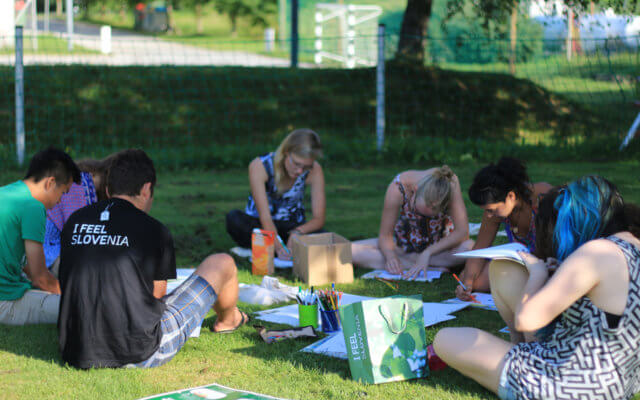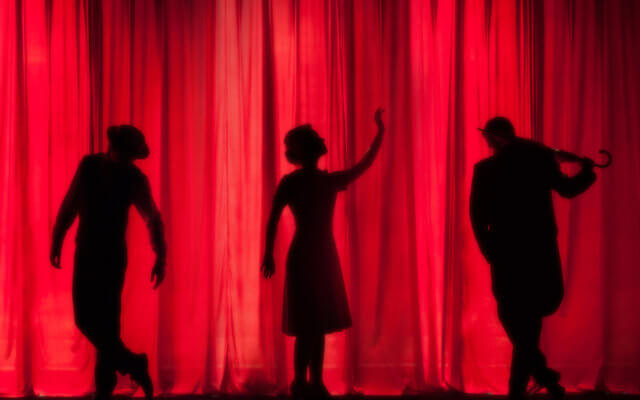ERASMUS+, Key Action 1: training course
Venue: Iasi, Romania
Training course: 24 November—2 December 2022
Czech team: Ema Rajčanová, Markéta Hodková
Please read the info-pack.
Hosting organisation: Association for the Social Integration of Roma „Help Gipsy”
Press release:
Roma youth are European youth – E+ project successfully implemented in Iasi, Romania
The APISRHG(RO), YOPA(HU), KINONIKI(GR), GENCLIK (TY), AVC(IT), Sirius (FI), VSI(LT), EYCB(CZ), TSSTF(BG), CIA(MK), TOUSKAROT(FR) consortium has successfully completed the “Roma Youth, European Youth” E+ training project, aimed at improving the youth work methods and tools for the well-being, empowerment, and advocacy of minority youth through theatre techniques.
The project included a preparatory meeting held from 16-17 October 2022, and a training course from 24 November – 1 December 2022 in Iasi, Romania. The training brought together youth workers from different countries and backgrounds, who were trained in using theatre techniques such as Stanislavsky Theatre (psychological theatre), improvisation theatre methods, and pantomime methods to support the needs of minority youth, including migrants and refugees.
The overall aim of the project was to increase the ability of youth workers to address the needs of minority young people and to develop new methods of work with minorities, especially through theatre techniques. Additionally, the project aimed to raise youth workers’ awareness and understanding of other cultures and countries, and to offer them the opportunity to build networks of international contacts.
The training course was based on non-formal education, with experienced trainers facilitating the learning process of participants. The methodology was learner-centered, consisting of theoretical elements about Erasmus+, theory about theatre and drama methodology, practical elements of equipping youth workers in theatre tools to work with minorities and empower them, elements of experience and practice-sharing, and elements aiming at reflection on gained competences, developing new theatre methodologies to work with minority youth. Participants practiced the methodology of Stanislavsky Theatre (psychological theatre), improvisation theatre methods, and pantomime methods.
Booklet Link: https://drive.google.com/file/d/1HGluSSDr0YZqDm1QN_n314j-oh2FrCJI/view?usp=share_link
The “Roma Youth, European Youth” project successfully met its learning objectives, which included increasing the ability of youth workers to address the needs of minority youth, developing new methods of work with minorities, raising youth workers’ awareness and understanding of other cultures and countries, and inventing youth exchanges addressing the needs and interests of minority youth according to the proposals of the Erasmus+ programme.
The project contributed to promoting social inclusion and empowerment of minority youth in Europe, and the consortium partners are proud of the success of the project and the impact it had on the participants and the communities they serve.
Project report:
Getting off the plane, leaving the airport and seeing … nothing. That was the first scenario in Iași. It was dark and foggy. If only we knew what a cool city Iași is and how nice people await us at that moment. Together with another Czech participant, I took part in an Erasmus+ training course in Iași, Romania, starting on 24th November and ending on 2nd of December 2022.
The first day of our project was focused on getting to know each other and turning strangers into a “bonded group” which is able to cooperate during the whole training. In the evening we took part in a cultural night where we represented our country as well as we knew – by many beers, sweets, and hermelín. The topic of the project was Roma Youth, European Youth which is explanatory itself. We tried to learn how to work with Roma youth and other minorities using different theatrical techniques. Firstly, we have debated challenges in our countries. Then we created short sketches and then our own longer performance which was to reflect on the specific issues connected to minorities in our countries. We were able to understand the challenges which Iași is dealing with through the eyes of local officers who are focused on helping and making policies for Roma people, and through a member of NGO Gypsy Eye, who organised a short workshop for us. On the 1st of December there was The Great Union Day (Romanian national day) and a huge military parade – which was a huge demonstration of power, indeed.
But Erasmus+ projects are not only about programmes. It is about sharing your experiences, seeing the experiences of others, being in a new place, practising your language skills and most importantly making friends. That’s what happened in my Erasmus+ experience. 305 is for me a label of this experience and the most amazing thing is that there are only a few people, let’s call them friends, who are able to understand that. Thanks to these little things, you give a completely new meaning to the experience.
Now, back home, thinking about the experience, it is definitely something I will benefit from. Sometimes it happens that the training does not go according to what you thought. However, the moment you are back home, talking about things you learnt and people you met to your friends and family, you realise it was completely worth it! Thanks for that.
Ema Rajčanová


